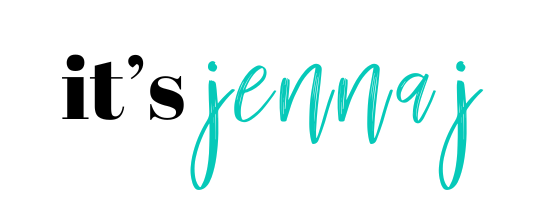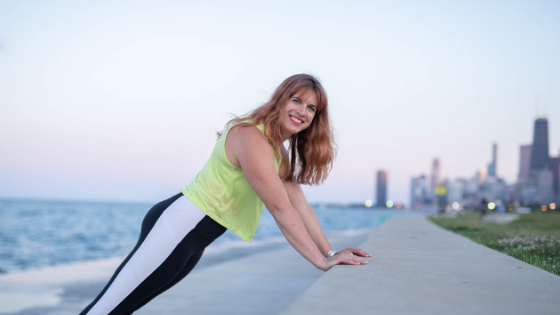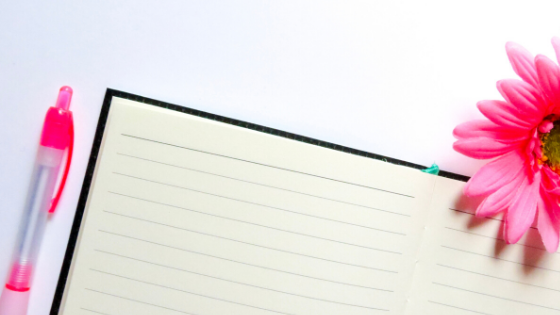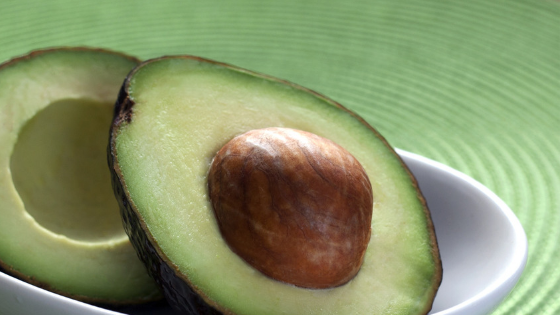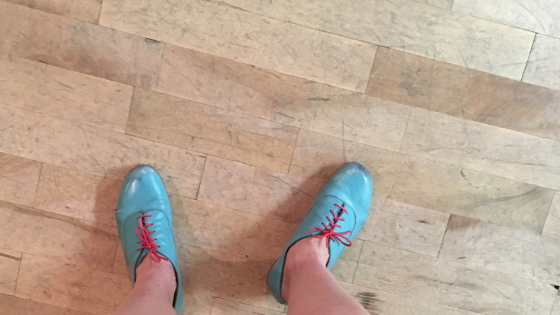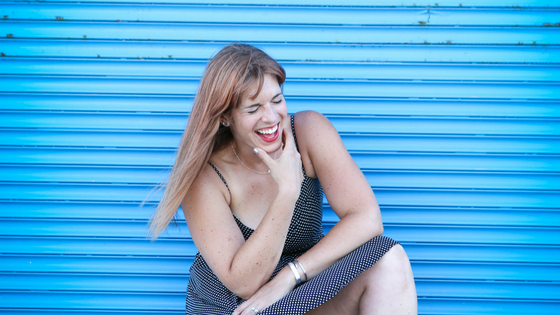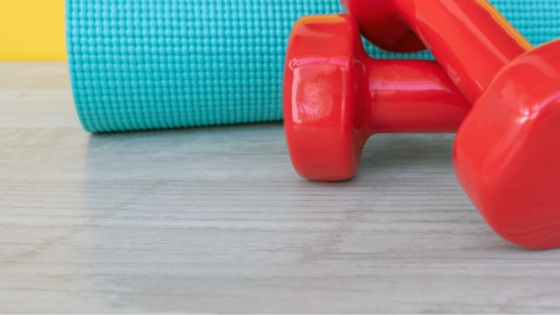My Fitness Philosophy is Unconventional & I’m Not Sorry About It
I think a lot of people are utterly confused about what I do and what exactly my fitness philosophy entails. I’ve had old classmates ask me to help them lose weight (more thoughts on this later). Been told I set a bad example for kids by eating candy (yep, I eat PB cups most days of the week). I had someone tell me that I was “all about loving your body” (I never said that). Got asked if I really thought a friend’s mom (who has type 2 diabetes) should continue to disregard her health (I also never said that).
I get it. People don’t know what to make of my approach to health and fitness.
One minute I’m posting a video of me swinging kettlebells. The next minute I’m telling you to take a rest day. First I’m calling BS on all the ways the fitness industry is making you feel like crap. Then I’m talking about the mental health benefits of working out. But just like everything I do, there’s a method to my madness. My fitness philosophy is unlike that of most others. And I’m not sorry about it.
If you’ve ever thought about working with me or wonder why I see things so differently than so many other fitpros, keep reading. Here are some of my core beliefs.
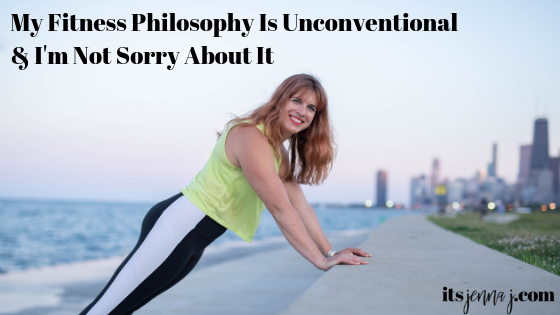
I operate from a Health At Every Size (HAES) framework.
A lot of people get really combative about this term without really understanding it. It does NOT mean that everyone is automatically “healthy at any size”. To me it means that you can focus on health promoting behaviors without obsessing over weight or body size. If you want to learn more read the book. Or just keep reading this blog post. . .
I believe that our industry has it a$$ backwards.
I said what I said. So often we’re told to lose weight at all costs so we can be “healthy”. But while higher weights are often correlated with certain health issues, that doesn’t necessarily mean that it’s the weight itself that causes them. By adopting healthier habits, some people may lose weight and improve their health as a result of the habits. Others might not lose weight. But that doesn’t necessarily mean they’re not getting healthier. Which leads me to my next point. . .
Thin does not automatically mean healthy or fit.
Size diversity is real. We weren’t all meant to be the same size. Healthy looks different on everyone and we need to stop assuming people’s health based on their size. More importantly. . .
Nobody deserves to be treated like $hit because of their body size or health status.
Health is not a moral obligation. And if you want to talk about the drain on the healthcare system, stop. Thin people get sick and injured too. We’re all gonna die eventually. We need to stop making fun of fat people behind their backs and to their faces. Yes, I use the word fat instead of obese or overweight because those words can be stigmatizing and pathologizing.
I believe that weight stigma can often be more harmful than the actual weight itself.
Weight stigma forces people to isolate themselves from friends and family, and social connections are health promoting. It causes people to not go to the doctor for treatable conditions because they’re tired of being told to “just lose weight” when they go in for treatment of a cold or a broken finger. It causes them to lose out on jobs and money because they’re assumed to be lazy.
Socioeconomic status has a big effect on health.
It’s easy to prioritize health when you have access to wealth. For example, I can afford a gym membership and have access to healthy food. I don’t have to work multiple minimum wage jobs to support a family. So I can get a good night’s sleep and take time off to go on vacation or get a massage. I live in neighborhood where it’s safe to walk and run outside. These are privileges that not everyone has access to. It doesn’t mean that I don’t work hard at the gym or make an effort to eat well. It just means I have it easier than most. How ’bout you?
Fitness is social justice issue.
Sometimes I get political around here. Sorry not sorry. It is. So if you ever wish I’d just stick to fluffy stuff like workouts and self-love and not speak out against things racism, misogyny, homophobia, and transphobia, the answer is NOPE. These types of things are all barriers to entry when it comes to health and fitness. When I say all are welcome I don’t just say it, I mean it. And it’s gonna involve a lot more work on a societal level to make that a reality.
All vibes are welcome with me.
Believe it or not, I’m not on the “good vibes only” train. Don’t get me wrong. I’m a positive person. I prefer good vibes. I’m very sensitive to vibes and the bad ones make me uncomfortable. That doesn’t mean we should sweep them under the rug. You can’t heal what you can’t feel. It took me a long time to accept this, but all vibes are now welcome with me.
But no body bashing, please.
This doesn’t fly in a training session with me. Please don’t complain about how “fat” you feel. It’s not helping you or anyone else. There’s nothing we can do with that. Instead, zero in on the actual feelings (physical, mental, emotional) that you’re dealing with. Because those are real. And we can work on that. Nobody was ever motivated by guilt and shame.
I think the term “love your body” is dismissive and I’ll never tell you you have to do it.
Loving your body is aspirational. The phrase kinda makes me wanna gag, TBH. Some people will have a harder time with this than others, and that’s ok. I’ll absolutely help you work on improving your body image. But neutrality is good enough for me. I won’t ask you to “love your body”, but I will challenge you to think critically about the systems that made you stop loving it in the first place.
I’m not against weight loss. It’s the hyperfocus on intentional weight loss that’s problematic in my book.
When we focus on weight loss at all costs we lose out on all the other wonderful benefits that come from working out. The pursuit of intentional weight loss often causes us to sacrifice mental health in the process. It also puts people at greater risk for developing an eating disorder. It reinforces a hierarchy of “good bodies” and “bad bodies”. And that sucks. No before/after photos here.
I understand that you want to lose weight. Of course you do. And I’m gonna ask you why.
Because often when we think we wanna lose weight what we actually want are the feelings and rewards that we think comes with it. I’m gonna ask you to focus on that instead. Of course you want to lose weight when society treats it as the greatest accomplishment a person could ever achieve. But it’s possible to meet society’s thin ideal and still feel like crap about yourself (been there). Besides, if most people knew what it took to look like a fitness model, they’d never want to do it anyway.
I believe in body autonomy.
Your body is your business. You’re allowed to want it to look however you want. AND society has a way of hijacking our beliefs of what we think is beautiful and acceptable. Sometimes what we think we want is being imposed on an external force. We should question this. A lot. We need to stop asking things like “Will lifting weights make me bulky?” and instead ask “Why should it matter?”
I am anti-diet. Non anti-dieter.
Diets fail most of the time in the long term. They don’t work. And yet we blame ourselves. If you think it’s working for you, cool. I’m not against you. I’m here to plant seeds that there’s another way. Because everybody shows the before/after, but nobody is sharing about the after “after”. So when you’ve had enough of that, I’ll be here. Ready to welcome you in with open arms.
You can think you’re not dieting and still kind of be dieting.
I was in denial for years. But whether you’re counting calories or points or macros or only eating the cleanest most organic foods, it’s all a different flavor of the same $hit sandwich. If your “lifestyle change” places morality on certain foods for the purpose of achieving a certain body type it’s 100% a diet. If you feel the need to “cheat” on your lifestyle change that’s also a diet. And diets don’t work.
I believe in Intuitive Eating.
Intuitive eating is more than just “eat when you’re hungry and stop when you’re full”. It’s not “eat exclusively pizza and ice cream until the end of time”. Read the book before you form an opinion. It might just change your life and your relationship to food.
I believe in staying in my lane.
There’s a lot of crap advice out there. It drives me nuts when I hear other personal trainers giving bad nutrition advice. Or to hear someone who sells shakes for a living trying to teach people how to work out. We all need to stay within our scope of practice as professionals, which is why I love to collaborate and make connections with folx in parallel industries. Take everything you hear with a grain of salt. Even if it’s coming from me. 😉
If you work out like me, you’re gonna look like YOU.
Genetics play into our physical appearance more than we realize and unfortunately many fitpros like to play that up. Round butts are trendy now. But I had one of those before it was cool. Because genetics. I’m not gonna exploit that to sell my “booty program”, but some people will. That inner thigh machine on the infomerical won’t give you a thigh gap, just because the inventor has one. That’s not how this works. Remember that the next time you look at any kind of fitness marketing.
Mental health is just as important as physical health.
Same goes for emotional and social health. Waking up at 5am to work out when you went to bed at midnight is NOT helping you reach your goals or supporting your health. Neither is eating exclusively guacamole at your friend’s birthday party because it’s the only keto snack option.
Sure, some people need to move more. For others the best fitness advice is to chill TF out.
So much of the wellness focuses on people who don’t work out ever or have never eaten a vegetable (while simultaneously shaming them for being this way). Then there’s the other end of the spectrum. The ones who tend to overdo it have a hard time taking a rest day. The ones who consider asking for zoodles on a trip to Italy. I used to be one. You too? I’m here for you. 🙂
Sometimes the way we operate as an industry pushes away the very people we are trying to help.
We need to consider the way our marketing and approach makes people feel. How many people are avoiding the gym because they feel judged or shamed by fitness marketing tactics or the last fitpro they worked with? A lot of my clients used to feel that way. I have to wonder how many others want to get moving but can’t figure out a safe place to start.
You are the expert on your own body.
Always and forever. I might know a lot about the human body, but you are the expert on yours. Your lived experience is your own. So next time someone tells you you need to eat X amount of calories or take X amount of steps a day, or that your BMI should be X, remember that those are arbitrary BS numbers. I’m here to help you learn to listen to your body, but you know yourself best.
I believe that the best form of exercise is the one you actually want to do.
This should be fun. There are no universal “best” or “worst” exercises. It all depends on you and your individual preferences and goals. I personally believe that strength training is AMAZING. If you decide to work with me, that’s likely what I’ll teach you. I also love yoga and dancing, and will encourage you to explore other activities that really light you up too!
Movement doesn’t have to be sweet and gentle to be “joyful”.
It can be, if that’s your jam. But when I first entered into this work, there was a lot of talk of “joyful movement”. Taking walks and doing gentle yoga. Those things are cool. But joyful movement can also be wild and free and ugly and gritty and HARD. It all depends on what you value and I encourage you to think about that for yourself.
It’s important to be a perpetual student. Learn, grow, evolve.
I’ll probably come back to edit this blog post in a year and change a bunch of this. Maybe it will even happen tomorrow. The point is to be open to new points of view. To grow. To learn. To continue your education. To know when to say “I don’t know.” I certainly didn’t start with these views when I started in the fitness industry almost 10 years ago and I’m sure they’ll continue to evolve and change. How bout you? Did you have any lightbulb moments from reading this? What was your biggest takeaway?
